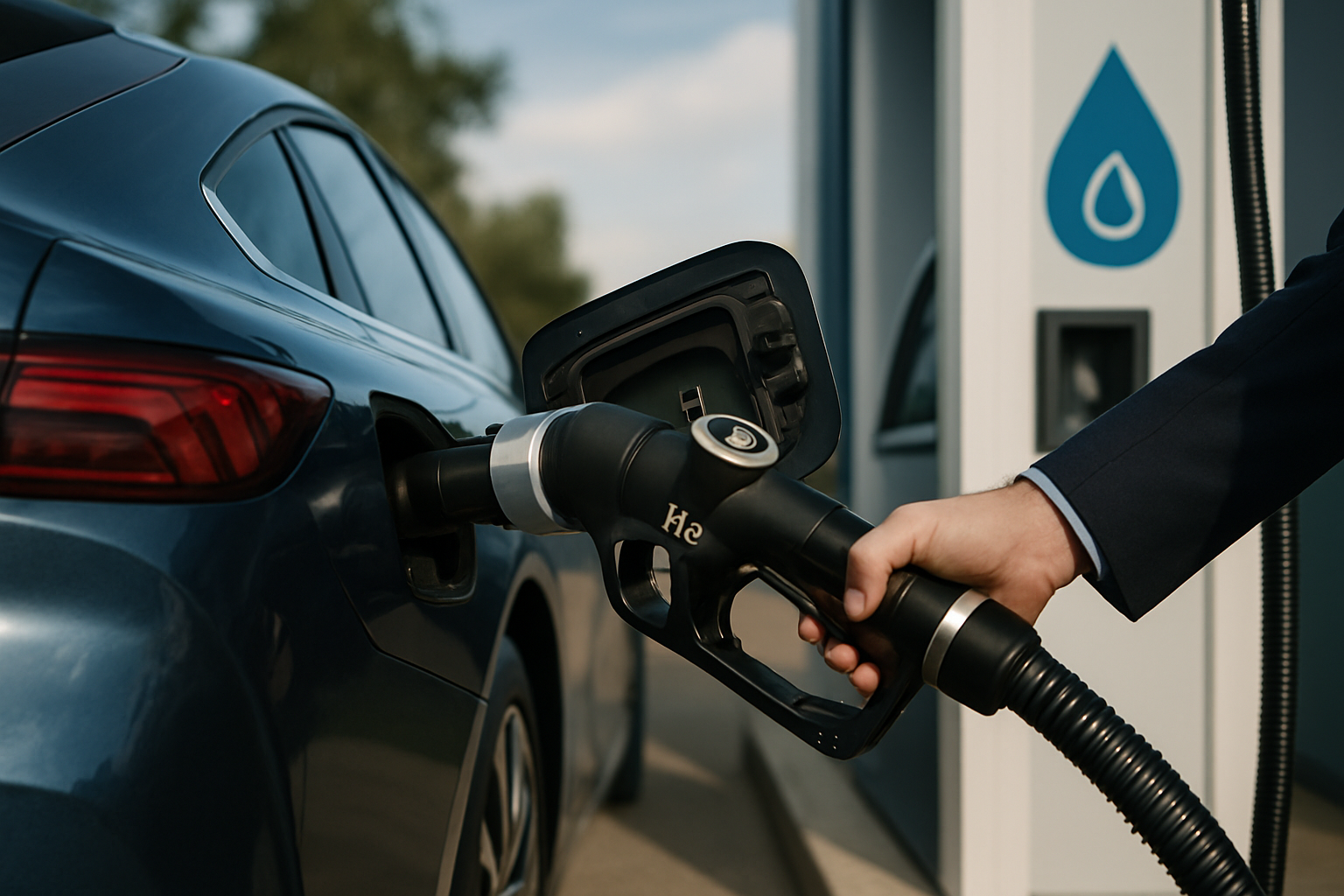Hydrogen Fuel Cells: The Quiet Revolution in Automotive Power
Imagine cruising down the highway in a vehicle that emits nothing but water vapor, refuels in minutes, and offers a range rivaling traditional gasoline-powered cars. This isn't science fiction; it's the promise of hydrogen fuel cell vehicles. As the automotive world grapples with environmental concerns and energy efficiency, hydrogen fuel cells are emerging as a compelling alternative to both conventional and battery-electric powertrains.

Fueling Infrastructure: The Chicken or the Egg?
One of the most significant challenges facing hydrogen fuel cell vehicles is the lack of fueling infrastructure. While electric vehicles can plug into the existing power grid, hydrogen requires a network of specialized fueling stations. This creates a classic chicken-and-egg problem: automakers are hesitant to produce hydrogen vehicles without a fueling network, while energy companies are reluctant to invest in stations without vehicles on the road. However, several regions, including California and parts of Europe and Japan, are making concerted efforts to build out hydrogen infrastructure, potentially paving the way for wider adoption.
Performance and Range: Competing with Conventional Cars
Hydrogen fuel cell vehicles offer several advantages over both internal combustion engines and battery-electric vehicles. They can be refueled in a matter of minutes, similar to gasoline-powered cars, addressing the long charging times associated with EVs. Additionally, fuel cell vehicles typically offer ranges comparable to or exceeding those of conventional cars, with some models capable of traveling over 400 miles on a single tank of hydrogen. This combination of quick refueling and long range makes hydrogen an attractive option for drivers who value convenience and flexibility.
Environmental Impact: Beyond Zero Emissions
While hydrogen fuel cell vehicles produce zero tailpipe emissions, it’s crucial to consider the entire lifecycle of hydrogen production and distribution. Currently, most hydrogen is produced through steam methane reforming, a process that uses natural gas and releases carbon dioxide. However, there’s growing interest in green hydrogen, produced through electrolysis powered by renewable energy sources like wind and solar. As the production of green hydrogen scales up, the environmental benefits of fuel cell vehicles could become even more significant, potentially offering a truly sustainable transportation solution.
Manufacturing Challenges and Innovations
Producing hydrogen fuel cell vehicles at scale presents unique manufacturing challenges. The fuel cell stack, which contains the proton exchange membrane and catalysts, requires precision engineering and expensive materials like platinum. However, ongoing research is yielding promising results in reducing costs and improving efficiency. Innovations in catalyst design, such as using nickel instead of platinum, and advancements in membrane technology are making fuel cells more economically viable. Additionally, automakers are exploring modular designs that could simplify production and reduce costs.
The Road Ahead: Collaborative Efforts and Policy Support
The future of hydrogen fuel cell vehicles depends largely on collaboration between automakers, energy companies, and governments. Several major car manufacturers have formed partnerships to share research and development costs, accelerating technological progress. Meanwhile, government policies play a crucial role in incentivizing both production and adoption of fuel cell vehicles. Countries like Japan and South Korea have made hydrogen a key part of their energy strategies, providing significant support for research, infrastructure development, and consumer incentives.
As the automotive industry continues to evolve, hydrogen fuel cells represent a fascinating alternative to traditional powertrains. While challenges remain, the potential benefits of this technology are too significant to ignore. From zero-emission driving to rapid refueling and long-range capability, hydrogen fuel cells offer a compelling vision for the future of transportation. As research progresses and infrastructure expands, we may well see these vehicles become an increasingly common sight on roads around the world, quietly revolutionizing the way we think about automotive power.





